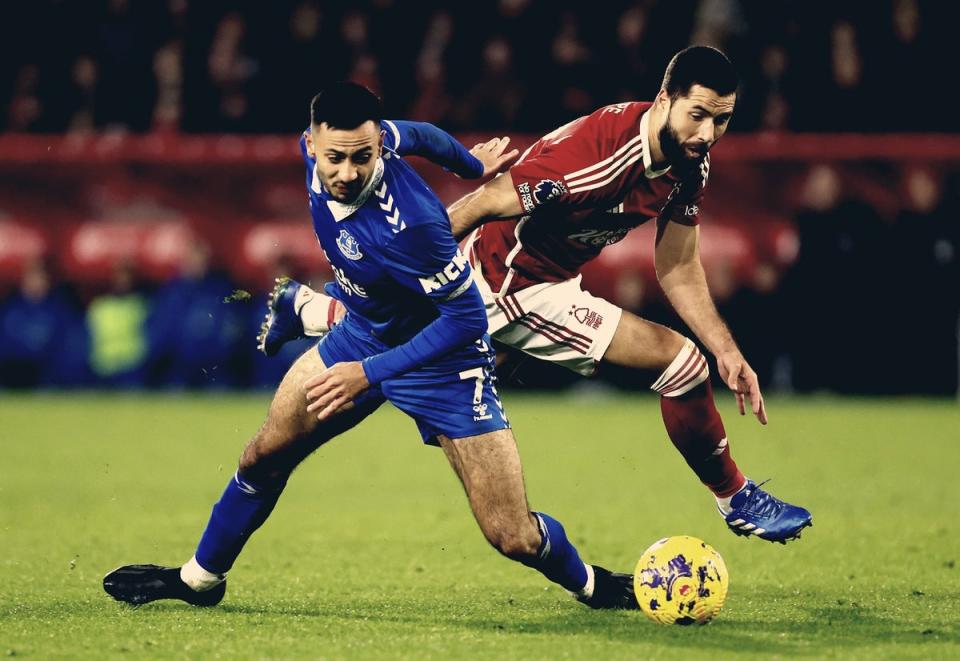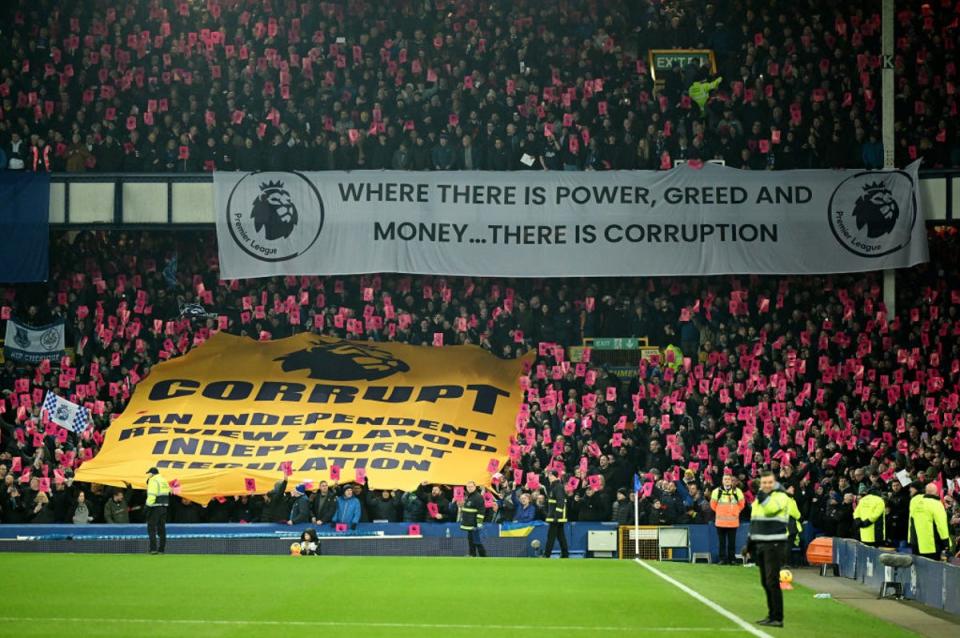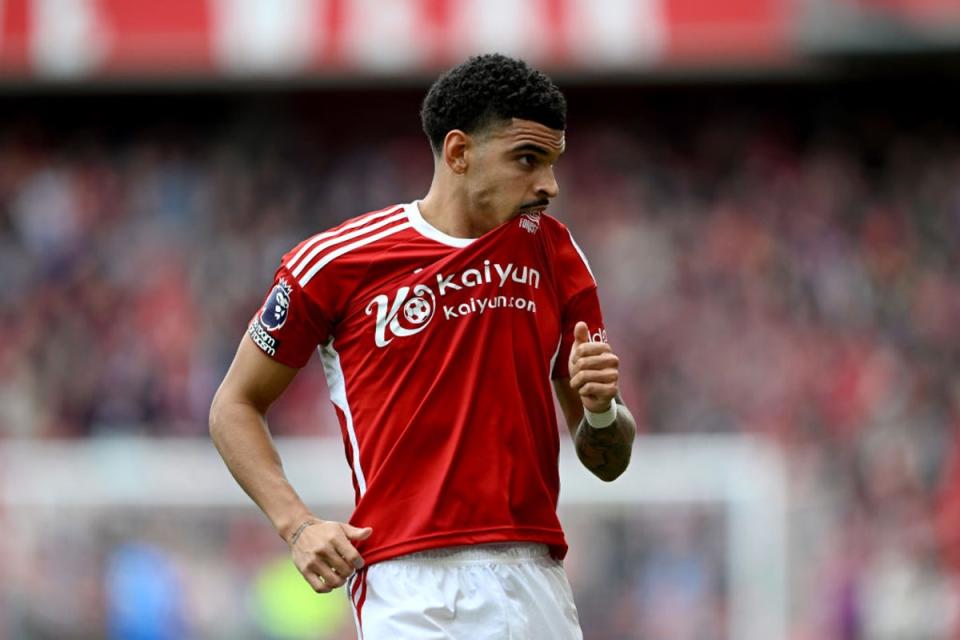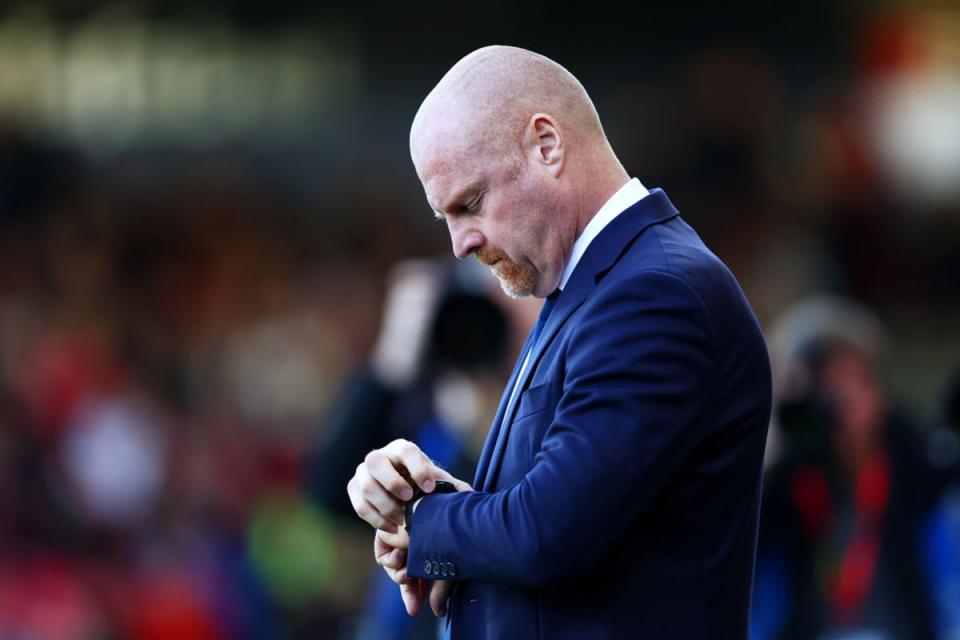How Everton, Forest and a shambolic relegation battle expose a crisis in the Premier League

It was one of those moments when, try as everyone did, they couldn’t help but peer over. That wasn’t helped by 777 Partners’ Josh Dreyfuss insisting on looking like Succession’s Kendall Roy by wearing one of those expensive baseball caps. The halftime whistle had been called at Stamford Bridge, and some of the Goodison Park executives had come together. What could they possibly be saying about this?
It wasn’t just that another dismal performance had left them 4-0 down to Chelsea at half-time, eventually to lose 6-0. It was also that such a shambles followed yet another development in their cost-control case, with the club announcing they would appeal the latest points deduction, amid ongoing headlines over 777's takeover process. None of these are words that suggest a particularly functional situation. That’s why others can’t help rubbernecking, but there’s much more to it than that.
Everyone at the bottom is looking at Everton, even more than Nottingham Forest, because their fate could change the entire face of the Premier League’s survival battle. There is constant new drama in that chase, which may well reach a peak this weekend. It is one of those moments when so many strands come together in a way that is almost narratively perfect, only burnishing the Premier League’s propensity for storylines.
Except, this isn’t a particularly encouraging or uplifting storyline. It is one that actually illustrates a lot that has gone wrong in the competition, especially in how fundamental trust in the Premier League’s table has been undermined by these points deductions.
In a match that almost represents a twisted sort of “derby”, Everton host Nottingham Forest on Sunday. It is the first ever Premier League meeting between two teams docked points for breaches of cost-control rules.
With Everton currently lying one point ahead of Forest and two above the relegation zone, albeit with the possibility that those totals could change again, the result will go a long way to deciding who stays up. It might still be most meaningful for the two clubs at the very bottom, whose demise could be hastened by another unwanted derby on Saturday. Burnley go to Sheffield United, with both hoping to add some respectability to campaigns that have already seen them cut adrift.
While there have been worse relegated teams, it is difficult to remember a worse relegation battle, certainly in terms of what it represents. It has been characterised by a tawdriness. There’s been low quality, low entertainment and – more grimly than anything – very little faith, given the potential changes to the table through those points deductions.
There’s actually an argument that it can only be saved if Luton Town stay up. Even that prospect, however, has been complicated by the news that the Premier League is seeking to bring the decisions on Everton’s appeal to before the last weekend of the season so “final” results are not later changed.
The situation says different things about each of the clubs involved, but adds up to one damning statement on the Premier League. Some criticism of those clubs should consequently be caveated.

This entire situation has been caused by the insanity of the Premier League’s dysfunctional relationship with money. That cuts through so much, right down to the justifiable anger over ticket prices.
It is also why this week’s series of European eliminations is rather timely. As immensely powerful as the Premier League remains in terms of its financial strength, there is a view within football that such an obscene level of wealth has actually prevented innovation. Clubs don’t have to think about problems too much if they can just solve them with signings. That has been an option denied to many European clubs because of how their English counterparts have inflated wages, forcing them to be tactically creative.
By contrast, any sense of logic or more far-reaching thought seems to have been lacking at the bottom of the Premier League.
While Everton and Forest only have themselves to blame for overspending, it does come from an impetus that goes much deeper, and is central to the Premier League’s foundation. They are both trying to compete in a world that has moved beyond them. That point absolutely isn’t to absolve either club, but it does cut to questions about identity and – yes – ambition.
For all that the Premier League sells itself on its unpredictability, the table generally conforms to wage bills. Those wage bills tend to be quite tiered. There isn’t that much variation. Despite that, this wage race has consistently caused so many irrational decisions, all the more so since higher payments don’t actually change that much. The shape of the Premier League hasn’t really altered. One line within football is that higher wages just means players have four Lamborghinis rather than three. The big six will still be the big six. The same teams tend to finish in the Champions League places, with odd aberrations, like what Aston Villa might do this season.
It is ultimately wrong that a competition awash with so much money has only become even more stratified, where fewer clubs can win. That’s all the more galling if you are one of the English league’s most successful ever clubs, like Everton, or two-time European Cup winners like Forest. This isn’t to say any club has a right to success, but the game has a responsibility to create competitive balance. So, much more money could and should be redistributed.

It is even more wrong that a historic club such as Everton, who have benefitted from hundreds of millions by being in the Premier League for so long, can still somehow come to be seen as a “distressed asset” by an American private investment group like 777. If that is the case, it should be the biggest warning that something has gone badly wrong with the economic model.
On the other side of the relegation zone, Forest and Burnley are further victims of this stratification. The problem is that they have almost become fixed parts of “Premier League 2”, that small group of clubs that seem destined to forever just go up and down from the Championship. The parachute payment system means they have too much money for the tier below but not enough for the elite.
The long-time illustration of this was Fulham and Norwich City exchanging places for four successive campaigns. This season, we may well see the culmination – or perhaps the nadir – with the three relegated Premier League sides from 2022/23 directly replacing those who were promoted.
As befits such a distorted situation, the moods at the involved clubs aren’t necessarily what you’d expect.

Everton are notionally in the best position, given they’re two points above the drop, even if that could change. You just wouldn’t think it from the atmosphere around the club. Morale is said to be extremely low. The Sean Dyche effect has long worn off, only exposing football that is just dull rather than disciplined. There’s an argument that Everton are currently the worst team to watch in the Premier League, to go with the debate over whether they’re the worst run. It’s all the more poignant since there are some brilliantly talented people at Goodison Park who know what’s what and really care for this institution. Their plight has sad real-life consequences for so many around the club.
Forest are one point behind Everton, but aren’t quite so beaten down. Even if Nuno Espirito Santo’s football isn’t much more lively than Dyche’s, there is more vibrancy to their squad. That is, pointedly enough, down to some of the huge spending that raised such questions in the first place.
Burnley have faced questions about their recruitment, although from a different angle. It is like they’ve overhauled the squad to just make it worse. It lacks a proper identity, despite Vincent Kompany supposedly being an ideology manager. Burnley has instead been so easy to get at, and it has started to worsen the mood. Their morale is currently described as not much better than Everton’s.
That can be poison at precarious moments such as this.
That has fostered a slight sense of regret at Sheffield United, but only because they have started to come together under the returned Chris Wilder. Performances have drastically improved, as has the mood. There is now a belief that they could have had a fighting chance of avoiding relegation had this just come a bit earlier. Again, you wouldn’t guess this is a side virtually certain of going down.
The weekend might decide a lot. Everyone will still look to Everton. This most unseemly of Premier League storylines could yet have something to cap it off.

 Yahoo Sport
Yahoo Sport 



































































